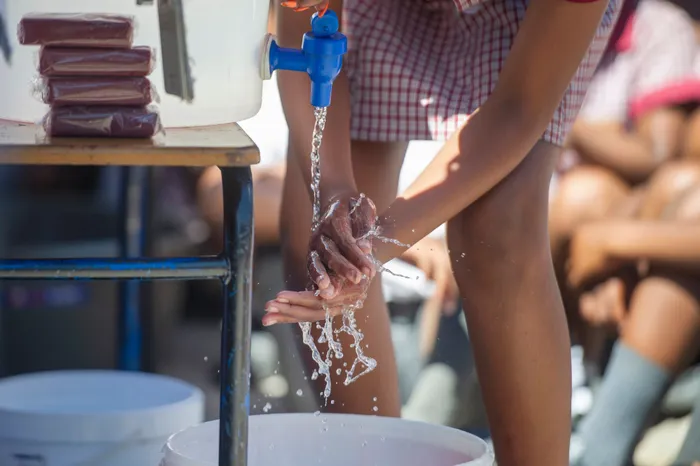Preschoolers are still without water to wash their hands
Health matters

Without proper hand hygiene, those germs can lead to dangerous illnesses, experts warn.
Image: Picture: Armand Hough/Independent Media
Too many South African children are unable to wash their hands as only 53% of Early Childhood Development (ECD) centres have piped water, electricity, and flushing toilets, while 8% have none at all.
This is because, despite a record R210 million government pledge to upgrade these centres over the next two years, basic infrastructure remains severely lacking.
Deb Zelezniak, CEO of the Santa Shoebox Project, warns that South Africa risks undermining the lifesaving power of handwashing unless urgent steps are taken to ensure access to clean, safe water in early learning spaces.
“Children constantly touch surfaces and objects, picking up germs as they go,” she explains. “Without proper hand hygiene, those germs can lead to dangerous illnesses like diarrhoea and respiratory infections - two of the leading causes of death among South Africa’s under-fives. Handwashing with soap can cut diarrhoea rates by up to 40% and respiratory infections by up to 25%.”
Beyond health concerns, Zelezniak highlights the deeper developmental consequences: “Research shows that poor water and sanitation infrastructure hinders a child’s cognitive, language, and motor development, with long-term effects on their educational attainment.”
While efforts to register and upgrade ECD centres are underway, many facilities remain stuck in a vicious cycle. “Centres that can’t afford the water and sanitation improvements needed for registration are locked out of the very funding that could help them upgrade,” she says. “Instead, they rely on rainwater tanks, boreholes, or public taps- none of which guarantee consistency or safety.”
Non-profits like the Santa Shoebox Project are working to renovate centres and promote better hygiene practices, but Zelezniak stresses that systemic change is essential. “This is not just a public health issue, it’s a matter of dignity, education, and the country’s long-term development. Supporting ECD owners to meet registration standards must be a national priority.”
“No child should fall sick or die simply because there was no water to wash their hands,” concludes Zelezniak.
Nasreen Badrodien I Santa Shoebox Project
